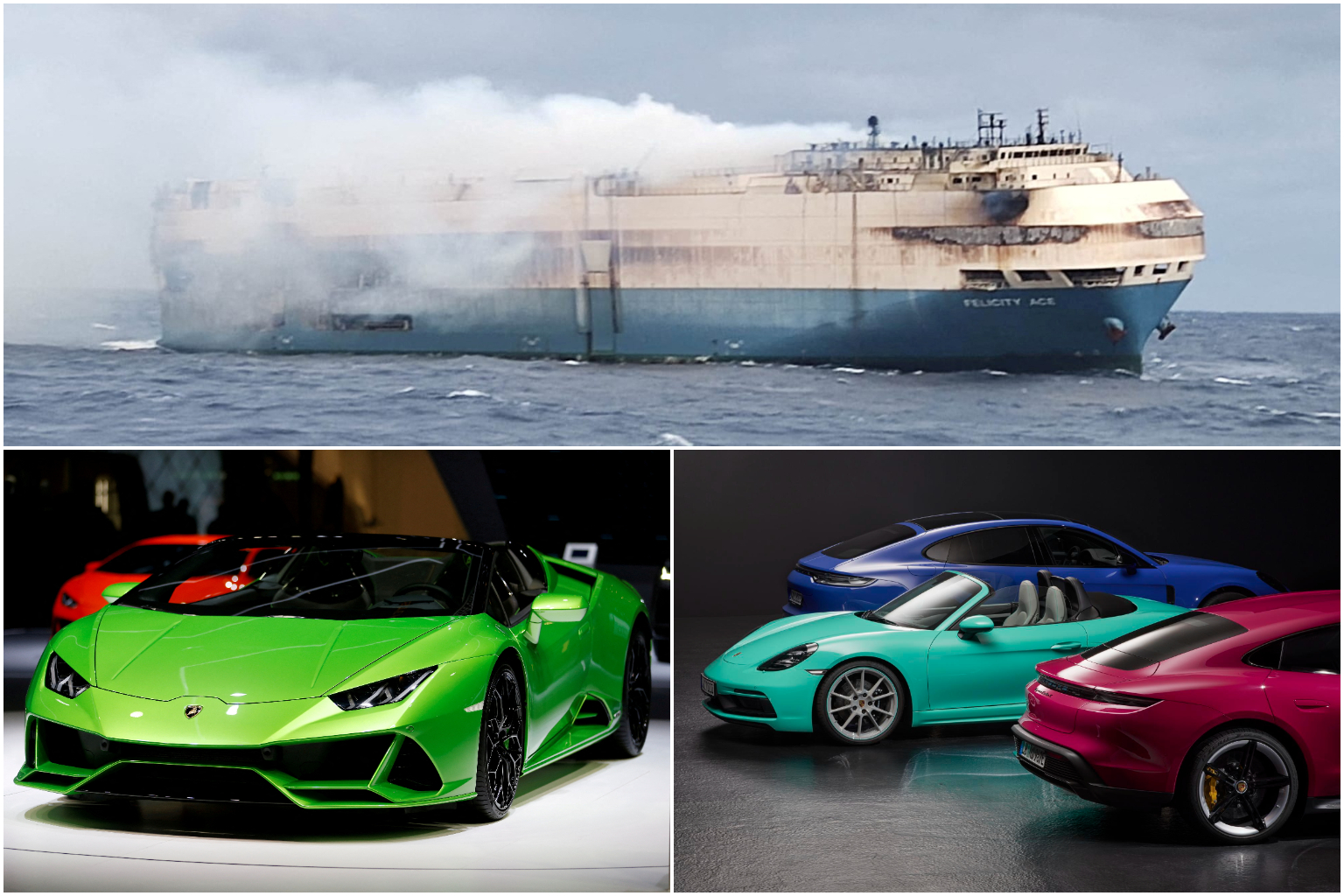Porsches, Lamborghinis lost at sea may cost VW $208 million
Sign up now: Get ST's newsletters delivered to your inbox

Felicity Ace, which was carrying about 4,000 Volkswagen vehicles, caught fire on Feb 16, 2022.
PHOTOS: REUTERS, PORSCHE
LONDON/LISBON (BLOOMBERG, REUTERS) - The cargo ship carrying about 4,000 Volkswagen vehicles that caught fire last week could cost the automaker at least US$155 million (S$208 million), according to a risk-modelling company's estimate.
Of the roughly US$438 million total value of goods aboard the Felicity Ace, which went up in flames off the coast of Portugal's Azores Islands, Russell Group said on Monday it estimates there are US$401 million worth of cars.
VW group had Volkswagen, Porsche, Audi, Bentley and Lamborghini models on the vessel. A VW spokesman declined to comment on the situation on Monday.
Two large tugs with firefighting equipment were expected to arrive on Monday morning local time to start spraying water, together with an initial salvage team that was on board already to cool down the ship, according to a unit of Mitsui OSK Lines.
No oil leakage has been confirmed and the vessel remains stable, the transport company said on a website set up to provide updates on the incident.
Russell Group is modelling the total value of vehicles on board, so its cost projections assume all vehicles are lost, according to a spokesman.
The company estimates auto manufacturers other than VW may have lost about US$246 million worth of vehicles.
A spokeswoman for BMW said none of the company's vehicles is on board, while a Mercedes-Benz spokesman said the automaker is not aware of any of its vehicles being on the ship.
Felicity Ace is roughly the size of three football fields.
It was on its way to a port in Davisville, Rhode Island in the United States, from Germany's Port of Emden until the fire broke out on Feb 16.
On Monday, a port official said the fire aboard the vessel off has lost its intensity, probably because there was little left to burn. Some of the cars had lithium-ion batteries.
The 22 crew members on board were evacuated when the ship caught fire last Wednesday.
"The fire has subsided in recent hours," João Mendes Cabeças, captain of the nearest port in the Azorean island of Faial, told Lusa news agency, saying there was probably little combustible material left to burn.
Cabeças told Reuters over the weekend lithium-ion batteries in the electric vehicles were "keeping the fire alive", adding that specialist equipment was required to extinguish it. It was not clear whether the batteries sparked the fire.
He had also said the fire was spreading closer to the ship's fuel tanks.
"Our concern has been with pollution since the ship has large amounts of fuel on board and car batteries but so far there are no hotbeds of pollution," Cabeças told Lusa.
As the fire's intensity ebbs, firefighting teams and technicians might be able to board the vessel to prepare towing it to either Europe or the Bahamas, Cabeças said.


